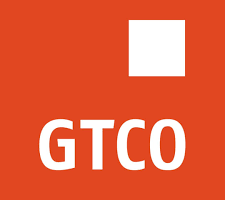Minister of Finance and Coordinating Minister of the Economy Wale Edun has said the federal government was targeting a 77 per cent increase in Internally Generated Revenue (IGR).
The minister, who made the disclosure Wednesday at the opening ceremony of the 2024 Strategic Management Retreat of the Federal Inland Revenue Service (FIRS), also said the federal government expects the Service to achieve its revenue target of N19.4 trillion this year.
This represents a N7 trillion increase over the sum of N12.3 trillion the Service generated in 2023.
The retreat has as its theme: Re-imagining Tax Administration and Economic Growth.
Addressing the gathering, Edun said an increase in the federal government’s IGR would not only boost government revenue, but also support the government to tackle its huge infrastructure deficit and build social safety nets that would help Nigerians address the challenges of high cost of living thrown up by current reforms.
“We are projecting a 77 per cent increase in IGR. Our revenue as a percentage of Gross Domestic Product (GDP) is low at below 10 per cent. It should be much higher.
“Government needs to spend so much on infrastructure and social services. The idea is to shift from expensive debts to domestic revenue mobilization,” the minister said.
He commended the FIRS management for holding the retreat, noting that the level of collection should be higher than what it is at the moment.
“It is commendable that the FIRS is holding this retreat at the beginning of the year to rub minds on how to increase government revenue,” he said.
In his opening remarks, the Executive Chairman FIRS Dr. Zacchs Adedeji described the new organisational structure of the Service as a paradigm shift that marked a focus from the old order to a customer focused one.
The FIRS boss said: “It is a critical milestone in our commitment to revolutionize tax administration in Nigeria. The cornerstone of this paradigm shift is the establishment of a customer-centric organizational structure designed to streamline processes and enhance efficiency in our tax operations. We are not merely adapting to change; we are leading it. The forthcoming structure, set to kick off from February 2024, embodies our dedication to modernize and digitize the tax administration landscape in Nigeria.
“In our pursuit for a more efficient and contemporary tax administration methodology, we are embracing an integrated tax approach, leveraging technology at every step. This approach positions FIRS at the forefront of innovation, ensuring that we meet the evolving needs of our taxpayers in a rapidly changing world.
“In a groundbreaking move, we are shifting away from traditional tax categorization. Instead of maintaining different departments for distinct tax categories, the new structure formulates taxpayer segments based on thresholds. This tailored approach ensures that taxpayers are guided and serviced according to their specific needs, eliminating confusion and redundancy in tax administration.”
He further said that with the new structure, the Service would meet the target set for it by the federal government, adding that the main focus is to drive long-term compliance.
“So, our focus is not to go and tax the informal sector. Our focus is actually to bring the informal sector to the sector. The focus should not be let’s go and tax informal. The focus should be to move the informal sector to the formal sector, improve their skill and then we can then tax them,” he said.




